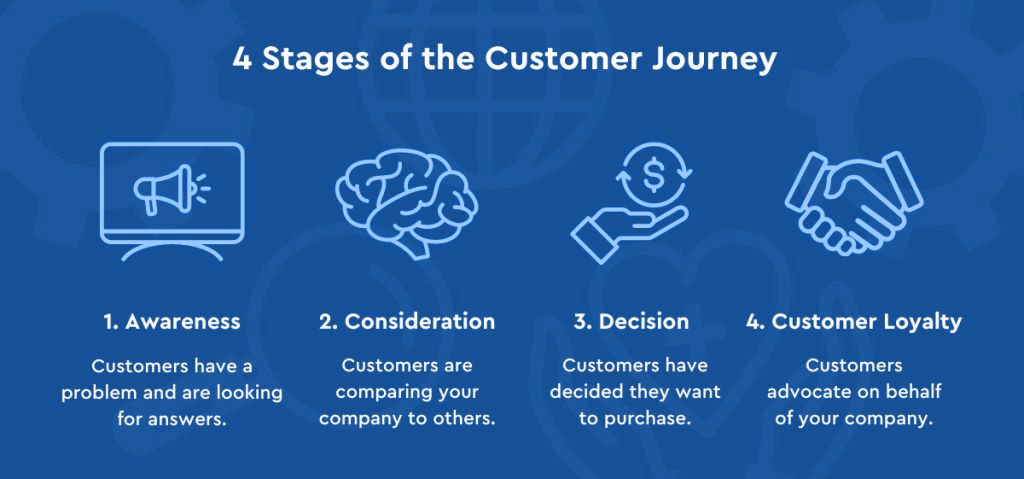In the rapidly evolving Indian real estate market, realtors and channel partners face fierce competition.
To thrive, effective real estate marketing strategies are crucial. This guide presents game-changing tactics tailored for success. From harnessing digital marketing to leveraging local market knowledge, we explore proven strategies to boost your real estate business, attract qualified leads, and close lucrative deals.
Get ready to unlock the secrets of successful real estate marketing in India and stay ahead of the curve in this dynamic real estate brokerage industry!
So if you are looking for powerful real estate marketing strategies, this is for you.
What Is a Real Estate Marketing Strategy?
A real estate marketing strategy, also known as a “marketing approach,” is a systematic plan to enhance your real estate brokerage business by improving lead generation and client conversion.
In simple terms, it is the process you follow to grow your business. Here are the steps to create a real estate marketing strategy in 2023:
Strategy #1: Map your Customer Journey In Real Estate
Strategy #2: Tap into Local Market Insights and Niche Targeting
Strategy #3: Harness the Power of Referrals and Networking
Strategy #4: Embrace Digital Marketing and Online Presence
Strategy #5: Use Personalised Communication in Real Estate
Strategy #1: Map your Customer Journey In Real Estate
Understanding your customer journey is crucial for real estate brokers looking to grow their business. By mapping out clients’ stages, you can engage with them effectively and provide a seamless experience. Here’s a breakdown of this real estate marketing strategy:

- Awareness Stage: At this stage, potential clients are just beginning to explore their real estate needs. Maybe 3, 4 months, or even 1 year ahead of their purchase. They may be researching online, seeking recommendations, or browsing listings.
- Consideration Stage: During this phase, clients have identified their requirements and are actively considering their options. They may be;
- Comparing properties and developers
- Evaluating different neighbourhoods, localities, and pricing or
- Seeking advice from multiple brokers and channel partners
- Decision Stage: Clients are ready to make a decision and finalize a transaction. Be responsive, proactive, and transparent in your communication. Provide detailed property information, facilitate visits, and assist with negotiations.
- Post-Purchase Stage: Nurture ongoing relationships and encourage referrals. Stay in touch through follow-ups, newsletters, and relevant updates. Offer post-purchase support and demonstrate your commitment to long-term satisfaction.
Mapping the customer journey in real estate helps identify touchpoints for value delivery, trust-building, and exceeding expectations. Tailor your real estate marketing and communication strategies accordingly.
Stay flexible and adaptable, as each client’s journey can vary.
Refine and optimize your approach based on customer insights to position yourself as a trusted advisor and thrive in the competitive real estate market.
Once you know which stage your customer is in, you are ready for Real Estate Marketing Strategy #2.
Strategy #2: Tap into Local Market Insights and Niche Targeting
The Indian real estate market is diverse, with different cities and neighbourhoods offering their own opportunities and challenges. To effectively market your properties, consider the following:
- Know the Local Market: Research the local market conditions, like:
- Property trends and pricing patterns
- What buyers prefer more. – 1 BHK / 2 BHK or a 3 BHK,
- Understand the demographics – ethnicity, age/generation, gender, income, marital status, education, and homeownership
- Infrastructure developments and amenities influence buyers’ decisions.
Customize your marketing messages to meet the specific needs of your target audience.
- Focus on a Specific Group: Instead of trying to appeal to everyone, specialize in a niche market segment. Whether it’s;
- Luxury Properties
- Affordable housing
- Commercial spaces
- Resale or Rental in certain communities
Catering to a specific group allows you to tailor your real estate marketing efforts and stand out from competitors.
- Partner with Local Influencers: Collaborate with local influencers, such as popular bloggers, social media personalities, or community leaders in your locality. Their endorsements and recommendations can increase your business visibility and credibility among your target audience.
Understanding the local market, focusing on a specific group, and partnering with local influencers will help you grow your real estate business.
By doing so, you can attract more qualified leads, enhance your reputation, and create more opportunities for growth. Now, let’s move forward to the third real estate marketing strategy.
Strategy #3: Harness the Power of Referrals and Networking
In the Indian real estate market, trust and personal connections play a vital role. Leverage the power of referrals and networking to expand your reach and build a solid reputation.
- Cultivate Relationships: Develop strong relationships with past clients, industry professionals, and influential individuals.
Stay in touch with your network, offer value, and position yourself as a reliable source of real estate expertise. Attend industry events, seminars, and conferences to meet potential clients and collaborators.
- Implement a Referral Program: Encourage clients to refer their friends, family, and colleagues to you.
Offer incentives or rewards for successful referrals, such as discounts, gift vouchers, or exclusive access to property listings.
- Collaborate with Other Professionals: Forge alliances with complementary professionals, such as mortgage brokers, lawyers, interior designers, and architects.
This allows you to offer your clients a comprehensive suite of services, enhancing their experience and setting yourself apart from competitors.
Strategy #4: Embrace Digital Marketing and Online Presence
In today’s digital age, establishing a strong online presence is paramount for real estate professionals in India. Embrace the power of technology to showcase your real estate listings, connect with potential buyers, and build brand authority. Here’s how:

- Create a Responsive Website: Design a visually appealing and user-friendly website that offers seamless navigation and showcases your property portfolio. Ensure it is mobile-friendly, as a significant portion of online traffic in India comes from mobile devices.
- Leverage Social Media: Utilize popular social media platforms like Facebook, Instagram, and LinkedIn to engage with your target audience. Share high-quality images, videos, and virtual tours of properties to captivate potential buyers. Interact with followers, answer queries, and provide valuable insights into the real estate market.
- Invest in Search Engine Optimization (SEO): Optimize your website and content to rank higher in search engine results. Conduct keyword research to understand the phrases potential buyers are using when searching for properties. Create informative blog posts, guides, and neighborhood profiles to attract organic traffic and establish yourself as an industry expert.
- Video Marketing: Embrace the power of video to showcase your properties in a compelling and immersive way. Create virtual tours, property walkthroughs, and client testimonials to engage and persuade potential buyers.
By embracing technology, creating a responsive website, leveraging social media, investing in SEO, and utilizing video marketing, you can connect with potential buyers, showcase properties effectively, and establish yourself as an industry authority.
Stay ahead of the competition and unlock the immense potential of the online landscape for your real estate business.
Strategy #5: Use Personalised Communication in Real Estate
Effective communication is the cornerstone of building strong relationships with clients in the real estate industry. In a crowded market, personalized communication can make a significant difference in capturing the attention of potential buyers and sellers. Here’s how you can leverage personalized communication to enhance your real estate business:
- Tailor Your Messaging: Understand your client’s unique needs and preferences and customize your communication accordingly. Craft personalized emails, messages, or phone calls that address their specific requirements and highlight properties that align with their preferences. You can build trust and credibility by showing that you understand their individual needs.
- Segment Your Audience: Divide your client database into different segments based on criteria such as location, property type, budget, or stage in the buying/selling process. This segmentation allows you to send targeted and relevant information to each group, increasing the chances of engagement and conversion.
- Utilize CRM Tools: Implement a customer relationship management (CRM) system like we have our in-house CRM KEYS to manage client information and interactions. A CRM enables you to track client preferences, communication history, and follow-up tasks. With this information at your fingertips, you can provide personalized recommendations, timely updates, and valuable insights to your clients.
- Personalize Follow-ups: After property showings or client meetings, send personalized follow-up messages to express appreciation for their time and address any questions or concerns they may have. This thoughtful gesture demonstrates your commitment to providing exceptional service and fosters a positive client experience.
- Stay in Touch: Maintain regular communication with past and current clients through personalized newsletters, holiday greetings, or updates on market trends. Keeping yourself top-of-mind increases the likelihood of referrals and repeat business.
Personalized communication in real estate helps you establish meaningful connections with clients and sets you apart from competitors.
By understanding and addressing individual needs, you can create a positive and memorable experience for your clients, leading to increased client satisfaction, word-of-mouth referrals, and, ultimately, business growth.
Let’s Hear It From You
It’s time to take action and choose a real estate marketing strategy that resonates with you.
Are you ready to create a seamless customer experience by mapping your customer journey? Or
are you eager to leverage the power of referrals and networking to expand your reach?
Remember, the key is to stay adaptable and flexible as you refine and optimize your approach based on customer insights and market trends.
By implementing these real estate marketing strategies, you will attract qualified leads, enhance your reputation, and create more opportunities for growth.
Now it’s your turn. Which real estate strategy from this post are you ready to try first? Share your thoughts, and let’s take your real estate business to new heights together. Take action now and start dominating the Indian real estate market!
To grow your real estate brokerage business even more, you can now partner with mymagnet.io, or you can also go ahead and download our app, click here!
